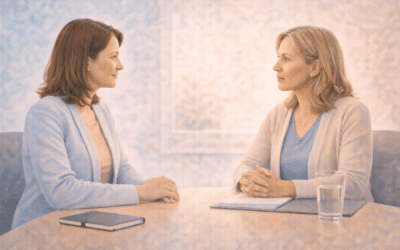
Firstly, if your client is asking a legal question, only licensed attorneys are legally allowed to provide answers to questions about legal rights and how the law applies to a specific situation. A CDC Certified Divorce Coach® supports their clients by helping them to clarify their questions, define what concern they have that is driving this question, and determine what outcome they are trying to get to – then they will help their client make the best use of the time they spend with any legal advisor.
But what if it’s not a legal question? What if it’s strictly related to an emotional issue (that will then likely lead to the legal question). Let’s face it, it’s really tempting to just answer them, especially if you do have specific examples from either your personal history or from other client’s experiences. And you may wonder, how am I going to provide value to this client if I don’t give them specific advice when they ask for it?
The fact is, there are a number of reasons you don’t want to advise them about what to do – the top being that you don’t know what would really work for them; you want them to own their decision; even though they’ve asked for input, they may not actually want to be told what to do; and by just answering them, rather than supporting and helping them work through the process themselves, you’re eroding the transformational power of coaching. They may feel pressured to take your advice, even if it’s not something they completely agree with, BECAUSE you are the coach, the expert.
Our role as a CDC Certified Divorce Coach® is not to overstep our boundaries, or make someone fit into our image of what we think should be done; rather it’s to support them in becoming the architect of their own life. From this point forward their decisions will be made solely on their own, rather than as a couple – help them lay the foundation for their future decisions by letting them take ownership of their new role.
Instead of answering them directly, here are four tips for gently and graciously turning the question back to client.
1. What are you trying to accomplish?
2. What questions do you need answered?
3. What guidance or perspectives would be helpful right now?
4. Who might help you understand the feasibility of what you want?
These questions help them to focus their thinking in forward, and to think about what they want in the future and not about what they don’t want from the past. This focus requires they start thinking about what is important to them.
As importantly, it helps you to avoid giving legal or financial advice, both of which are generally restricted to licensed professionals; and it keeps you in the coaching role, helping the client to develop their ability to see more options and make better decisions for themselves.
You have helped them get organized for meeting they will have and make the most effective use of the time they spend with that adviser!
Ubuntu in Action: Celebrating 15 Years of Impact and Community in Divorce Coaching
As we observe Black History Month, we are reminded that progress is rarely the result of one voice alone. It is built through courage, collaboration, shared purpose, and community. This year, as CDC Certified Divorce Coach® celebrates 15 years of making a difference...
Clearer Minds, Better Outcomes: The Power of Divorce Coaching
Divorce is not simply a legal process. It is a period of intense transition - emotionally, financially, and relationally. During this time, individuals are often required to make some of the most significant decisions of their lives while navigating one of the most...
Understanding the Distinct Role of Divorce Coaching
A CDC Certified Divorce Coach® does not provide legal advice, negotiate settlements, or act as a therapist. Instead, divorce coaches focus on helping clients become better participants in whatever legal process they choose. Divorce coaching is designed...




